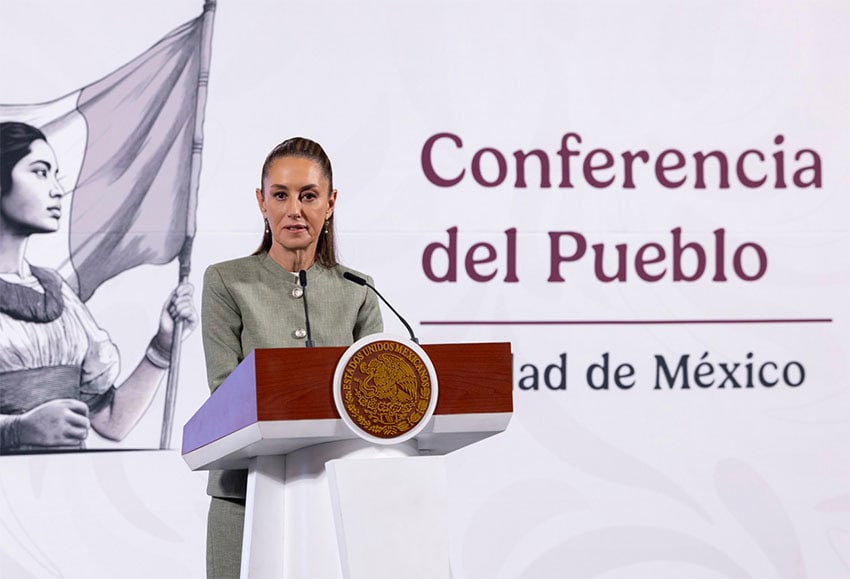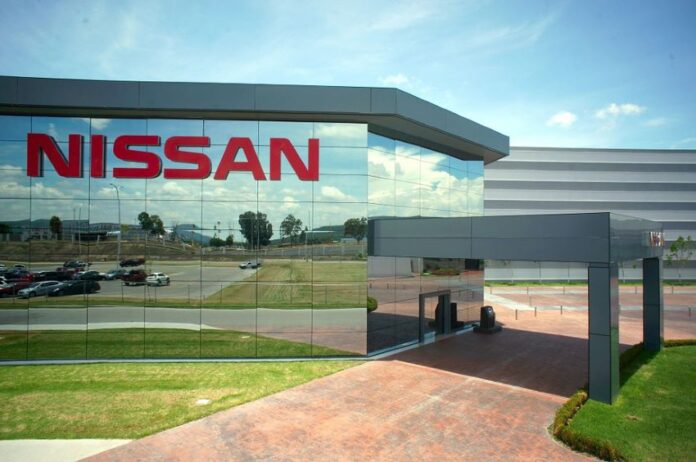Nissan is sticking to its current production and investment plans for Mexico despite the United States’ imposition of tariffs on imported vehicles last week, according to the head of the Mexican subsidiary of the Japanese automaker.
“There is no modification to short-term plans because to a large extent those decisions aren’t short-term ones,” Rodrigo Centeno, president and general director of Nissan Mexicana, told reporters after the presentation of the company’s 2024 results.

“Moving production tooling is not so easy, it’s a matter that requires a lot of planning and strategy,” he said.
“We don’t have any change on the table at this time. We have the pedal to the metal.”
Centeno’s remarks came after the United States imposed 25% tariffs on imported vehicles last Thursday. U.S. content in vehicles imported from Mexico and Canada under the USMCA free trade pact isn’t subject to the tariff, lowering the effective rate for most cars made in Mexico. U.S. tariffs on imported auto parts are set to take effect next month.
Centeno’s assertion that Nissan isn’t making any immediate change to its plans in Mexico serves as reassurance for the Mexican auto sector as the company’s CEO Makoto Uchida said in February that the automaker could leave Mexico if 25% tariffs proposed by U.S. President Donald Trump were to take effect.
Nissan has three plants in Mexico — two in the state of Aguascalientes and one in Morelos — from which it exports about 320,000 vehicles to the U.S. each year. The company sold more cars in Mexico last year than any other automaker.
Nissan chief praises Sheinbaum
Centeno said he supported President Claudia Sheinbaum’s goal of increasing automotive production in Mexico by 10%. He also endorsed Sheinbaum’s approach in dealing with the United States as she seeks the best possible trading conditions for Mexico.
“She’s leading in an assertive, correct, moderate and adult way. I believe we’re doing well and the results are tangible,” Centeno said.
Sheinbaum said on Friday that Mexico is “in a better position than other countries in the world” because the United States didn’t impose so-called “reciprocal tariffs” on its exports, while many goods can still be shipped to the U.S. tariff-free if they comply with the rules of the USMCA. She said that Mexico avoided reciprocal tariffs on its exports to the U.S. due to “the good relationship we’ve built between the government of Mexico and the government of the United States.”

Economy Minister Marcelo Ebrard said last Thursday that Mexico has “preferential treatment” from the United States, and declared that the government’s “goal in the next 40 days is to achieve the best conditions among all countries of the world for the [Mexican] auto industry.”
Centeno said “it’s time to work for and with Mexico” and asserted that Nissan is committed to the country while also having “a significant global vocation.”
The Japanese automaker has been the top seller of vehicles in Mexico for 17 years, and 85% of the vehicles it sells here are made in the country.
Nissan sold more than 255,000 vehicles in Mexico last year, while it made just under 670,000 units at its three Mexican plants, an 8.8% increase compared to 2023.
Last September, the automaker began producing its new Kicks crossover vehicle in Aguascalientes, investing US $150 million in a new production line.
With reports from El Universal
